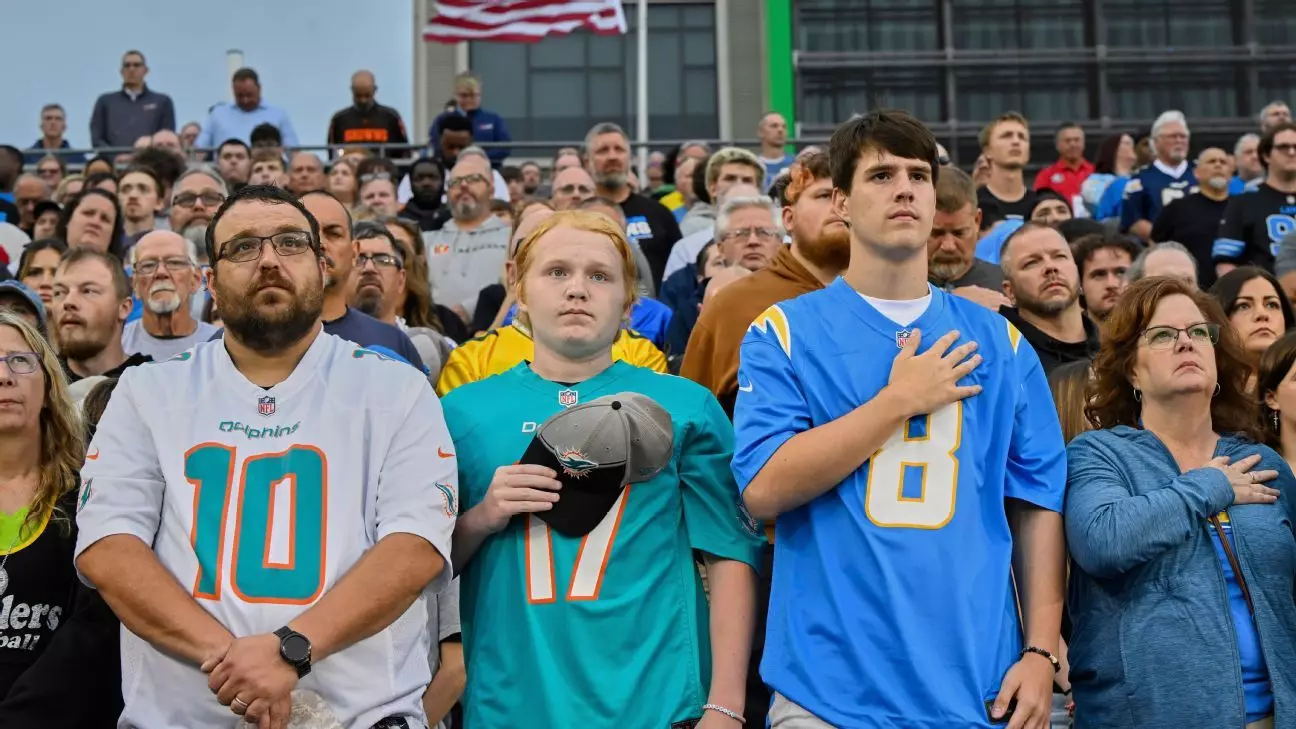In a time when national tragedies seem to be unfolding at an alarming rate, the NFL’s opening moments were marred by stark reminders of societal decay—the shooting at league headquarters, innocent lives lost, and the haunting echoes of violence that threaten to consume our collective consciousness. This isn’t merely about football; it’s a mirror held up to our fractured society, exposing vulnerabilities we often refuse to confront. The league’s acknowledgment of these tragedies, through moments of silence and symbolic gestures, highlights a superficial attempt to address widespread issues that demand deeper, systemic change. Celebrating athletic excellence amidst such chaos feels increasingly dissonant, a distraction from the urgent need to address root causes like mental health neglect, gun violence, and societal alienation.
The Hollow Comfort of Rituals and Virtual Outreach
NFL’s efforts to promote unity through virtual town halls and fleeting moments of remembrance are well-intentioned but ultimately insufficient. These gestures attempt to mask the reality that violence, fueled by mental health crises and economic despair, continues to plague communities far beyond the stadiums. Encouraging remote work in league offices, while a step towards caution, trivializes the deeper issues—families torn apart by senseless acts, a nation grappling with rising fear and distrust. The tragic figure of Shane Tamura, whose mental health struggles and grievances against the NFL reflect broader societal failures, underscores how we continue to ignore these wounds rather than heal them. Ignoring these signs of societal sickness only feeds the cycle of violence, leaving us all vulnerable.
Distracted Patriotism: When Sports Mask Societal Ailments
The NFL’s grand halls and the induction ceremonies for legendary players serve as symbols of excellence, yet they stand in stark contrast to the chaos that unfolds just outside their gates. Patriotism and celebration have become superficial defenses against the disillusionment many feel—the endless cycle of violence, economic instability, and political division. We cling to these moments of pride, even as we turn a blind eye to the systemic flaws that foster despair. The league’s focus on safety measures and heightened security, while necessary, serves as a band-aid rather than a cure. The truth is that societal wounds are not just about physical security but about reclaiming a sense of community, empathy, and shared responsibility—a task that demands more than fleeting moments of collective mourning.
A Call to Confront Hard Truths, Not Just Offer Sympathies
Recognition of these tragedies should catalyze a profound introspection about what kind of society we are cultivating. The recurring patterns of violence—whether in schools, workplaces, or our streets—point to deeper systemic failures: inadequate mental health resources, pervasive inequality, and a culture that sometimes venerates aggression over compassion. The NFL’s acknowledgment of the shooter’s mental health issues and grievances over CTE is important but insufficient; what’s truly needed is a commitment to destigmatize mental health struggles and address the economic and social conditions that exacerbate them. We must move beyond superficial sympathies and toward meaningful reform—of institutions, policies, and cultural values—that prioritize human dignity over spectacle.
Reimaging Our Society: Beyond the Spectacle
There is an undeniable need for societal reevaluation—an intentional shift towards a culture that values mental well-being, community resilience, and genuine empathy. The fleeting moments of remembrance and security measures are inadequate if they are not accompanied by real investments in mental health infrastructure, education, and social justice. The NFL, as a microcosm of society, reflects these broader issues: its handling of violence, its hero worship of athletes, and its superficial engagement with trauma. To forge a society that is less fractured, we must demand more than just symbolic gestures; we need systemic change rooted in compassion, responsibility, and an unwavering commitment to human life. Only then can we hope to transform the culture of violence that continues to threaten our societal fabric.


Leave a Reply